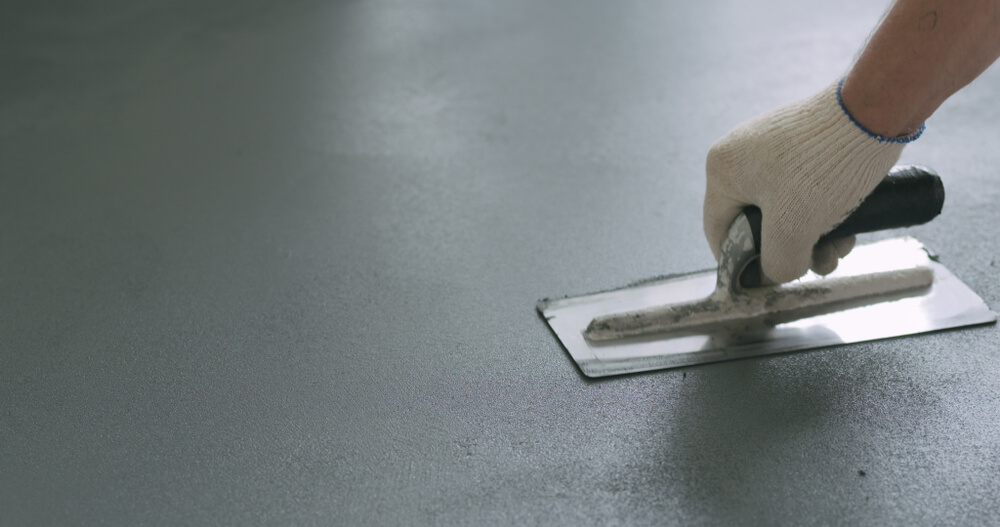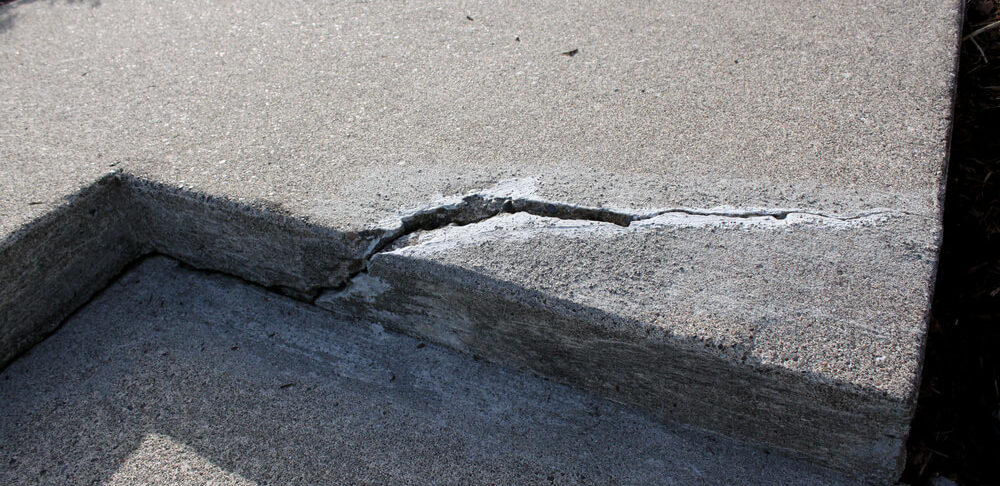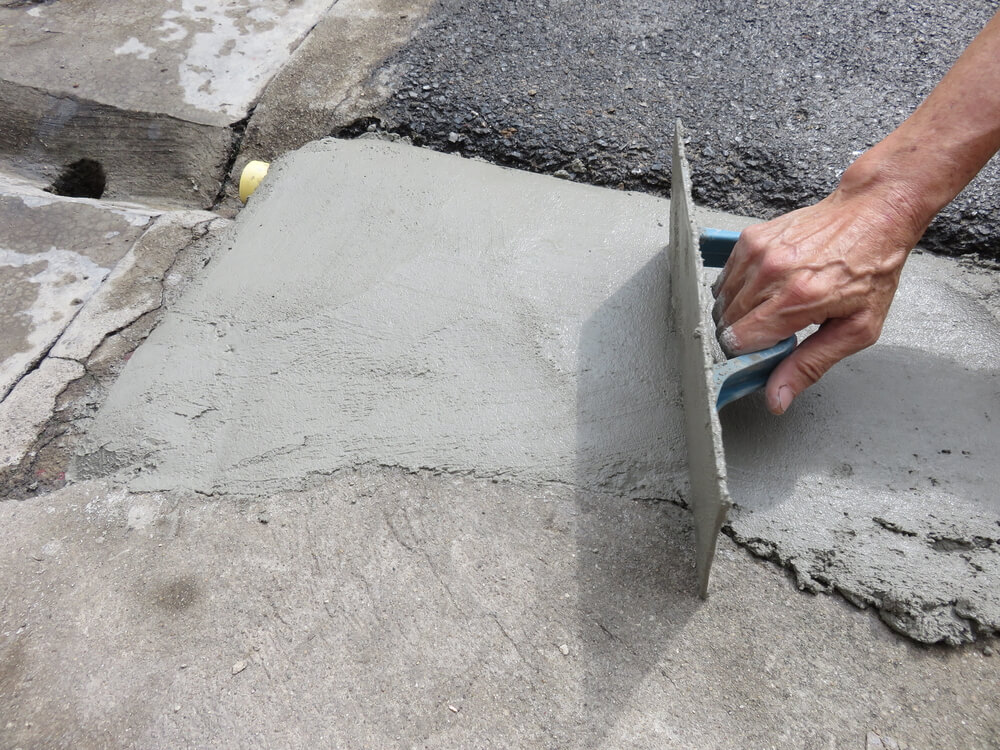As a homeowner, it’s understandable that you want to save money by doing home repairs yourself. In fact, every homeowner learns to be a connoisseur of the DIY industry. From fixing gutters to refinishing and repainting walls.
However, some repairs should be left to professionals, and concrete repair and resurfacing are one of them. Whether the concrete is on your patio or in your kitchen, trying to DIY concrete repair and resurfacing can result in expensive mistakes, unsafe conditions, and an unsightly finish.
In this article, we’ll explain why you shouldn’t attempt DIY concrete repair and resurfacing.
Causes of Cracks and Damage on Concrete
Concrete is a durable and long-lasting material, but it is still susceptible to cracks and damage over time. Here are some of the most common causes of cracks and damage on concrete:
- Settlement and shrinkage of concrete can cause cracks when the underlying soil compresses or shifts.
- Freezing and thawing in cold climates can cause gaps in the concrete, causing it to weaken.
- Chemical damage from exposure to chemicals such as salt, acids, and alkalis causes the concrete to weaken and crack.
- Heavy loads and impact such as heavy vehicles or falling objects cause cracking and chipping.
- Improper concrete installation either by inadequate compaction or improper curing.
- Water damage can cause underlying soil or surface to erode and create cracks in the concrete.
- Time causes concrete to naturally deteriorate and crack due to age and exposure to the elements.
The Dangers of Cracks and Damage on Concrete
So why should you even care when you notice cracks or damage to concrete in your home? You may brush it off as simply an aesthetic issue and move forward but cracked and damaged concrete poses more of a threat than ruining curb appeal.
Here are some of the dangers of cracks and damage on concrete:
Tripping Hazards
Uneven concrete surfaces caused by cracks or damage on driveways are a major tripping hazard, especially for children or elderly individuals. For homeowners with children, elderly relatives, or living in an area frequented by either, this can result in serious injuries, including broken bones or head injuries.
Structural Instability
Cracks and damage on concrete can weaken the structure of the concrete, leading to structural instability over time. Whether on concrete countertops or concrete walls, the result is the concrete collapsing and shifting which is dangerous for anyone nearby.
Water Damage
While water damage leads to concrete damage, not addressing the crack can lead to further water damage. This is especially true for walls, countertops, and other structural components.
Pest Infestation
Cracks in concrete can provide an entry point for pests such as ants, termites, and rodents. The pests then cause damage to other structures around the home, weakening them and causing further damage.
Why You Shouldn’t DIY Concrete Repair and Resurfacing
With the list of risks of concrete damage in your mind, you may be tempted to rush to your local hardware store and attempt a DIY repair. However, you may want to think twice before you do. There are several reasons why you should leave these tasks to professionals.
Lack of Experience
Concrete repair and resurfacing require specialized knowledge and experience. Without proper training, attempting to repair or resurface concrete on your own can result in costly mistakes that can compromise the safety and stability of your home.
Safety Risks
Working with concrete can be dangerous, especially if you don’t have the proper tools, experience, and equipment. Not only is concrete heavy, but it can also be difficult to handle, and mixing concrete requires specific safety precautions to avoid injury.
Costly
While you may think you’re saving a couple of hundred bucks attempting to DIY concrete repair and resurfacing, you may end up with an even bigger bill. Without proper tools and experience, you may end up doing more harm than good. You’ll then have to pay to undo the work and fix the repairs.
Bad Materials
The proper materials for concrete repair and resurfacing ensure a safe and durable result. It can be tough to choose the correct materials for your specific concrete repair needs without the proper knowledge.
Time-Consuming
Concrete repair and resurfacing projects are not quick jobs. More often than not, you will spend at least a couple of days on it, especially if it’s your first time.
Lack of Warranty
If you attempt to repair or resurface concrete on your own and something goes wrong, you won’t have a warranty or guarantee to fall back on because you don’t have a professional warranty.
Why You Should Hire a Professional Concrete Contractor

DIY projects are fun and rewarding but attempting to repair or resurface your damaged or cracked concrete is not worth the risk. Instead of risking further damages like those listed above, you should look for a professional concrete contractor.
A professional concrete contractor has the knowledge, tools, and expertise to properly diagnose the cause of the damage, recommend the appropriate repair method, and ensure a long-lasting fix. In addition, a professional contractor can save you money in the long run by preventing further damage and avoiding costly repairs or replacements.
At Richfield Concrete, we are committed to providing wallet-friendly concrete repair and resurfacing services. Our high-quality work and rave reviews speak to our team’s excellence, professionalism, and experience. Contact Richfield Concrete today for your concrete repair and resurfacing needs.





